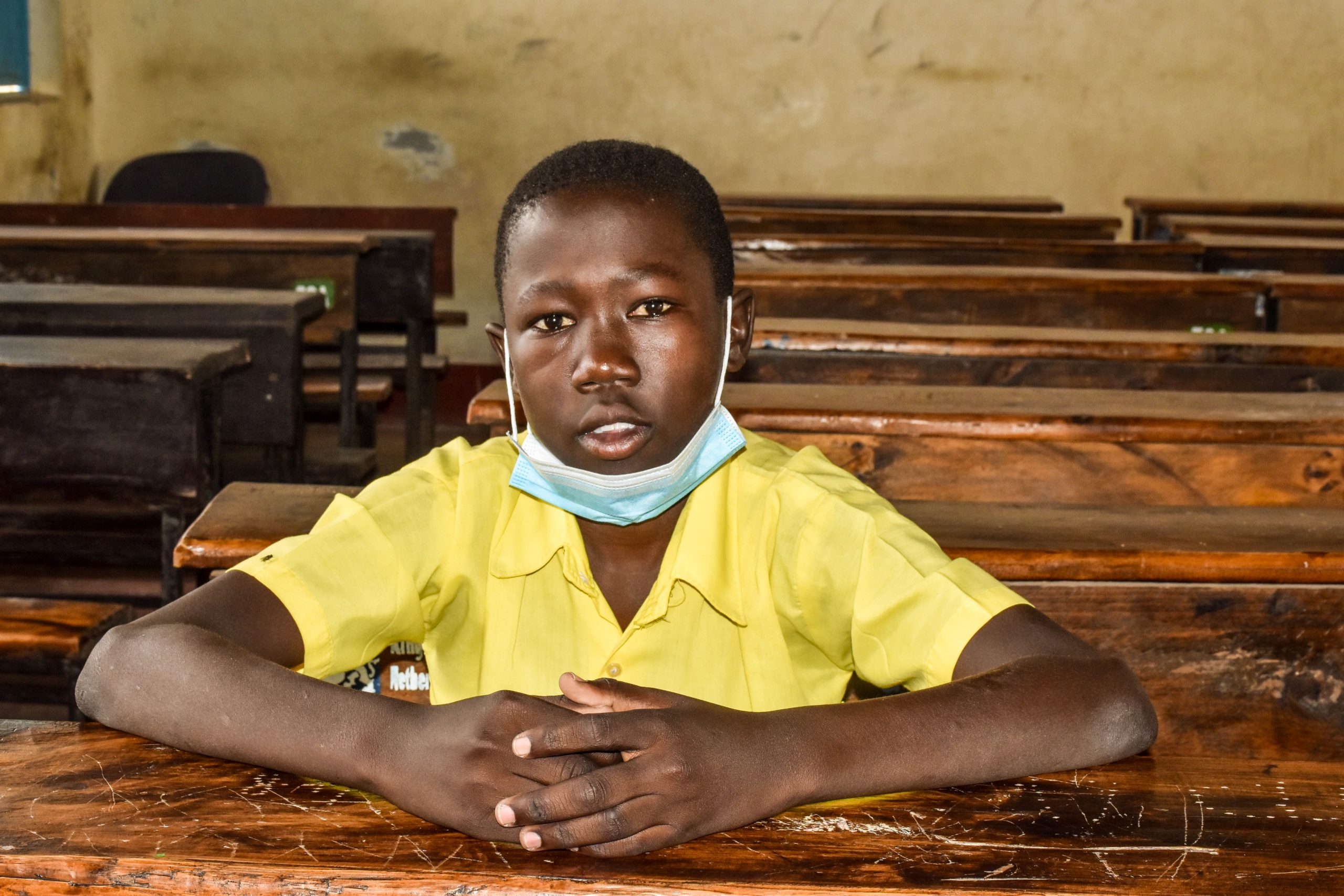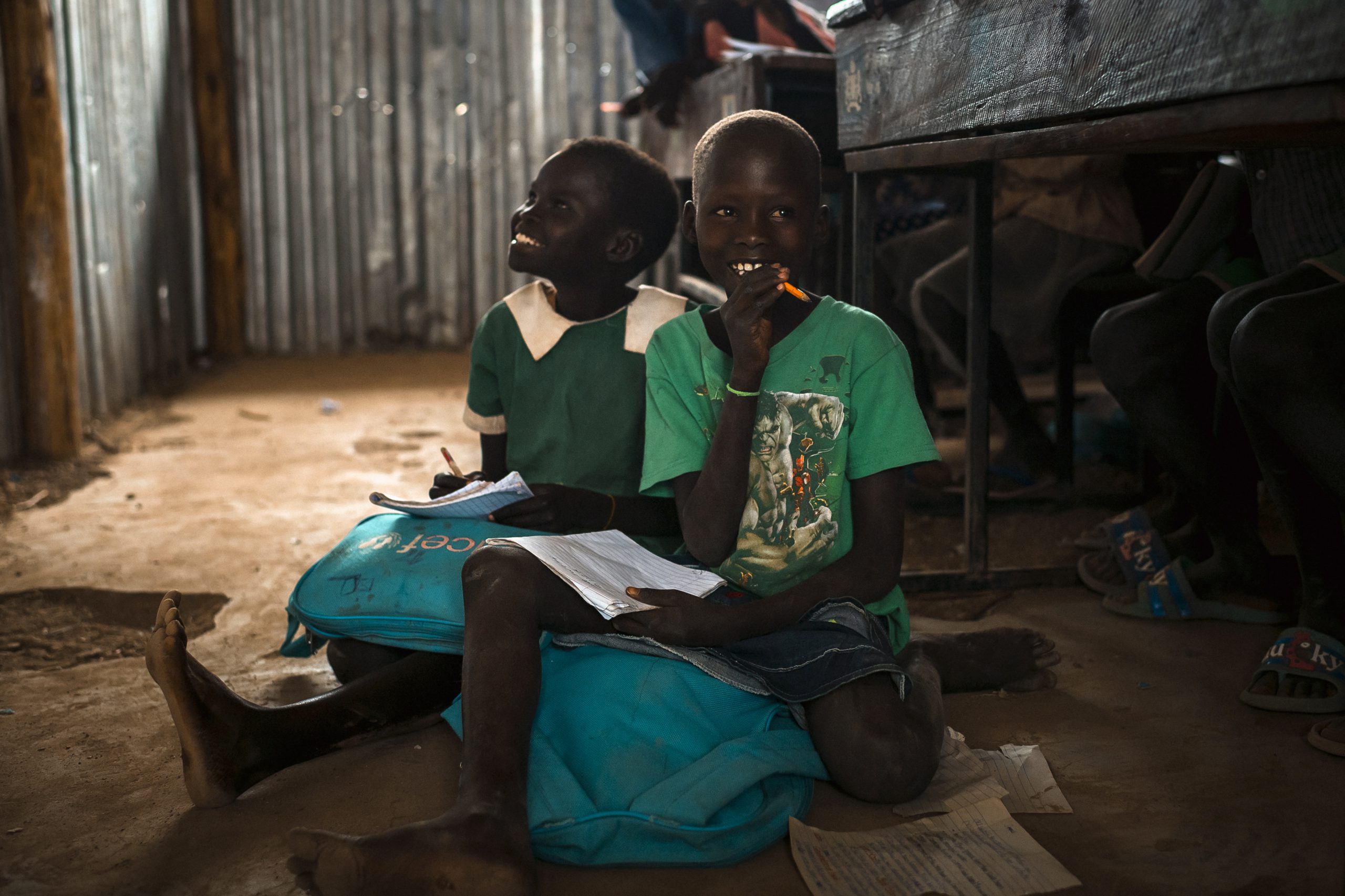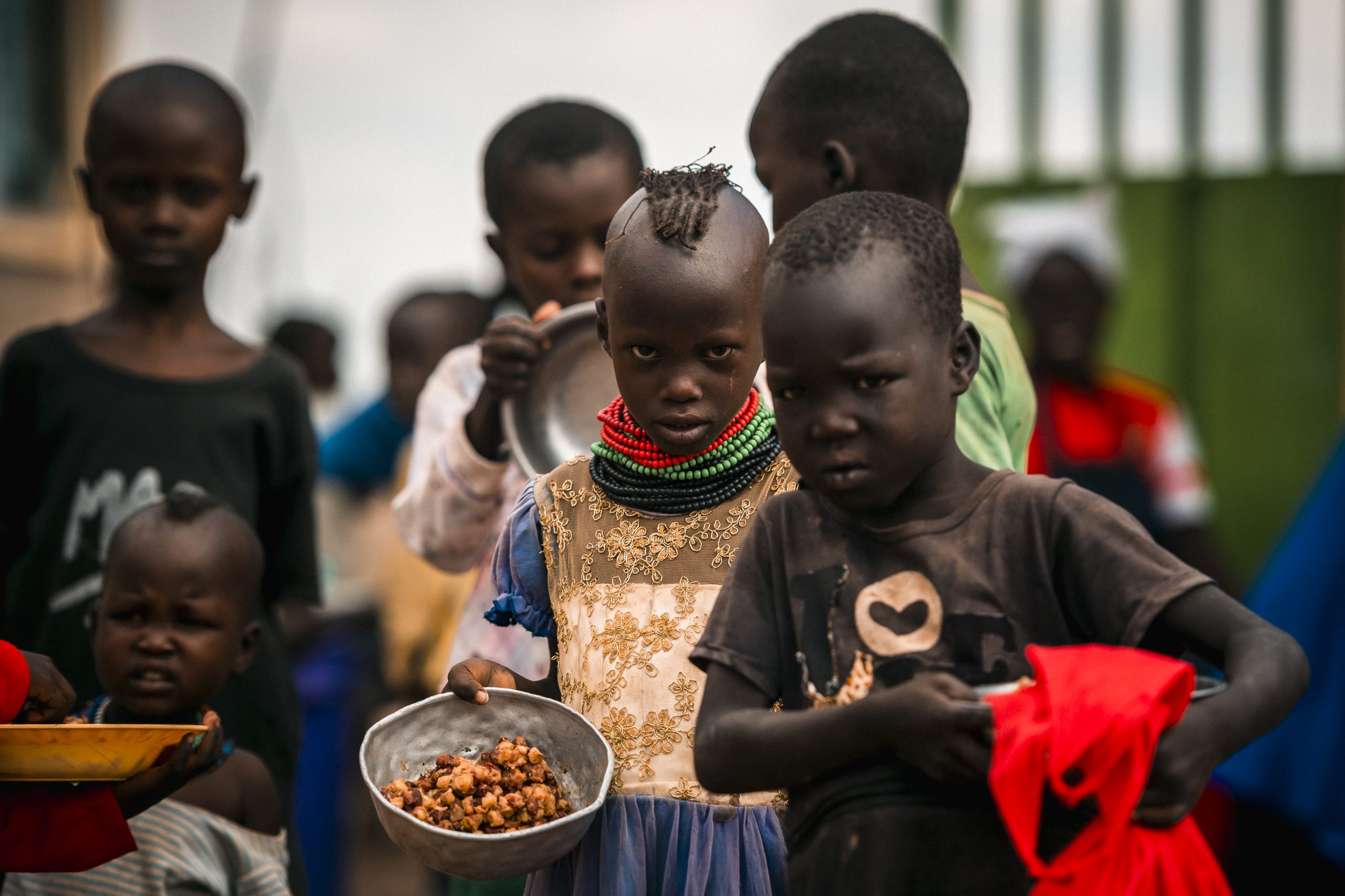Free school meals mean better grades for refugees in Kenya

Daily meals provided to refugee students in Kenya help them to excel.
PHILLIP LOTURI JOHN wants to become President of South Sudan. The 15-year-old is a student at Morning Star Primary School, one of the six schools that Finn Church Aid (FCA) operates in Kalobeyei, northern Kenya. Philip scored 391 on his Kenya Certificate for Primary Education (KCPE), making him the best overall student at any of FCA’s schools in Kalobeyei.
Located in the Turkana region, an arid area that suffers frequent drought, local people live together with refugees in Kalobeyei. While the Turkana people are traditionally pastoralists, they struggle with the arid climate and this is one of the reasons why FCA provides daily meals of maize and beans to refugees and Turkana students, with support from the World Food Programme (WFP).

Phillip wants to become the President of South Sudan so that he can help other children, like himself, get an education. “Being a refugee, I would love to see all children acquire education,” he says. His best subject is Social Studies because he believes it will ‘mould him into a good leader’.
Along with his parents, John Lomeri and Monica Epii, and his five siblings, Philip came to Kenya in 2016 when conflict escalated in South Sudan. They fled and found their way to Kenya where they were registered by UNHCR and settled in Kalobeyei.
WFP’s school feeding programme provides hot meals to all of the 21,000 children at FCA’s schools in Kalobeyei. The meals help to increase enrolment by encouraging parents to send their children to school as Phillip’s mother can testify. “I am glad that my children get education, but they are also offered meals,” she says.

Phillip is happy that he doesn’t have to try and learn on an empty stomach. “We can concentrate in school because we are not hungry. I performed well because I was never hungry,” he says, appreciating the contribution that WFP makes.
“When we go home in the evening, we often don’t find our parents because they either went to work or do business,” he says. “So, since we had meals in school, we end up revising or doing remedial classes with our teachers after 4 pm.”
Phillip’s high grades are not so unusual – the link between school meals and scholastic performance is proven. Providing school meals consistently increases school enrollment and attendance. “We have been able to keep learners in schools because of the free meals. School meal plays an important and is a motivating factor for the learners and for parents to enroll children,” said Antony Zenga, the headteacher of the Morning Star Primary. FCA Kenya schools are registered as public schools by the Ministry of Education in Kenya, thus qualifying them to be government schools where children from the local community and refugees can attend.
The Secretary of Education in Kenya, George Magoha, announced on 10 April 2022 that all students who scored over 380 for their KCPE can attend national schools. Six students from schools in Kalobeyei are eligible to enroll this year and, as one of those students, Phillip is one step closer to becoming President of South Sudan.
Text: Elizabeth Oriedi